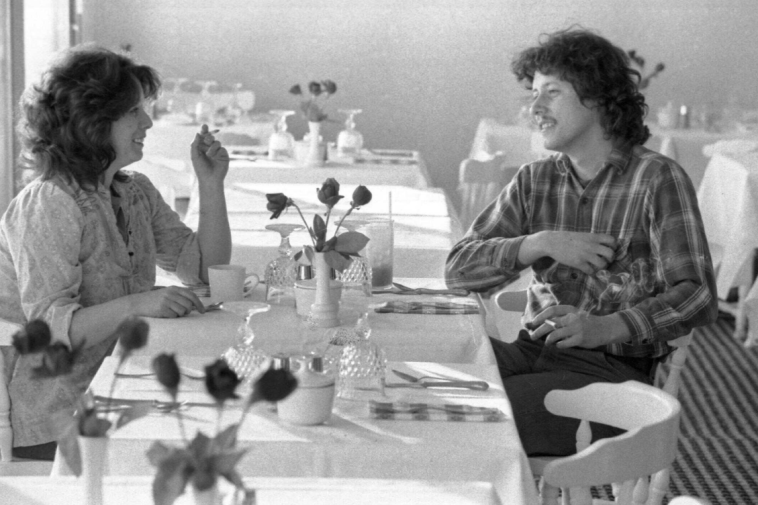A week before Thanksgiving, the holiday that serves as the backdrop for the song’s meandering narrative, Alice Brock passed away in Wellfleet, Massachusetts, on Thursday. Her restaurant in western Massachusetts was immortalized as the location where “you can get anything you want” in Arlo Guthrie’s 1967 antiwar song “Alice’s Restaurant.” Her age was eighty-three.
She passed away in a hospice due to chronic obstructive lung illness, according to close friend Viki Merrick.
Since the song, technically titled “Alice’s Restaurant Massacree,” was released by Mr. Guthrie in 1967, it has been a mainstay on classic-rock stations every late November, not to mention during automobile trips to visit relatives for Thanksgiving meal.
The Back Room, Ms. Brock’s restaurant, isn’t mentioned in the song too much. Speaking more than singing for a little over eighteen minutes, Mr. Guthrie describes a Thanksgiving meal visit he and a buddy, Rick Robbins, paid to Ms. Brock and her husband, Ray Brock.
A shaggy-dog tale follows: Mr. Robbins and Mr. Guthrie discard rubbish in a ravine after bringing it to the city landfill, only to discover it is closed. Ms. Brock has to save them when the cops arrest them for littering the following morning.
The next day, they go to court and the judge fines them $50 after she prepares a large lunch for them all that evening. Afterwards, Mr. Guthrie is directed to an Army induction center, where his criminal past allows him to evade the draft.
Ms. Brock contributed to the song’s initial composition till the trial.
After dinner, she told writer C.A. Sanders, “we sat around and wrote half the song, and Arlo wrote the other half, the draft part.”

An image of Ms. Brock and Mr. Guthrie smiling while seated across from one another at a restaurant table in black and white.
In 1977, Ms. Brock and Mr. Guthrie. He was a student when they first met, and she was a school librarian.Giving credit…Robert S. Cox Special Collections and University Archives Research Center, UMass Amherst Libraries, Peter Simon Collection
With its wry line, “You want to know if I’m moral enough join the Army, burn women, kids, houses, and villages after bein’ a litterbug,” Mr. Guthrie sang the song for the first time at the 1967 Newport Folk Festival. It was also the title track of his debut album, which was published that fall.
The antiwar movement adopted it as its unofficial anthem.
Ms. Brock was also made famous by the song, despite having closed her restaurant by the time it was released. “At least initially,” she remarked, “it was an unwanted fame.”
“Public figures are not really treated with much respect,” she said in 2014 on WAMC Northeast Public Radio, “so I was really uncomfortable.” “They aren’t, in fact. When your name appears in the newspaper, people start to wonder, “Oh, are you Alice?” As if they were interested in my rear end or something, turn around.
The 1970s saw Ms. Brock experiment with various eateries. In 1979, after closing the last one, she relocated to Provincetown, Massachusetts, on the Cape Cod coast, where she worked odd jobs to fund her new painting career.
She also eventually learned to accept the fate that fame had dealt her.
“I was bitter about it for a while,” she admitted to WAMC. “How can I be upset when I’ve realized that people are ecstatic when they hear my name?”
Alice May Pelkey loved to claim that she was conceived in Provincetown, however her birth took place in Brooklyn on February 28, 1941. Joe, her father, was a printer, and Mary (Dubrovski) Pelkey, her mother, was a real estate agent.
Editors’ Selections
Top Thanksgiving Shows to Watch Right Now
An “improved” Olympics could take place. Shall It?
Travel for vacations is back in full swing. However, it has consistently been awful.
She left Sarah Lawrence College in her sophomore year, subsequently claiming that she was supporting “unpopular political causes.” After relocating to the Lower East Side of Manhattan, she met sculptor and architect Ray Brock.
Following their 1962 marriage, they relocated to Stockbridge, Massachusetts, the following year. She was a librarian and he was an art instructor at the exclusive Stockbridge School, where they made friends with Mr. Guthrie, a student and the son of folk musician Woody Guthrie.
In addition to helping the couple purchase a deconsecrated Episcopal church, which they converted into their house and which is also included in the narrative of “Alice’s Restaurant,” Ms. Brock opened the Back Room at her mother’s insistence.

The Arlo Guthrie album cover for “Alice’s Restaurant” features a picture of a very young Mr. Guthrie sitting at a dining table, seemingly nude from the waist up, with a napkin across his chest and a bowler hat on his head.
“Alice’s Restaurant” was the title track of Arlo Guthrie’s debut album, which was released that fall, and he first sang it at the 1967 Newport Folk Festival.
Pat Quinn played Ms. Brock in the 1968 movie directed by Arthur Penn, which was based on the song. (Ms. Brock made a brief appearance and was a consultant.) On the same day that the Brocks’ divorce was formally announced, a scene in which the fictional Brocks get married was shot.
In addition to two granddaughters, one great-granddaughter, and two great-great-grandchildren, Ms. Brock is survived by her stepchildren, Becca, Jono, and Fletcher Brock.
She sold the church in 1971 and shut down the Back Room in 1967. In order to house his archives and a community action center, Mr. Guthrie purchased it in 1991. She sought to put her popularity behind her by moving to Provincetown by that point, where she joined a close-knit group on the Cape that she referred to as her “chosen family.”
Among her many works are the children’s book “How to Massage Your Cat” (1985), the autobiographical work “My Life as a Restaurant” (1976), and the cookbook “The Alice’s Restaurant Cookbook” (1969). Additionally, she drew Mr. Guthrie’s 1995 book “Mooses Come Walking.”
A 2020 segment on the NPR show “Morning Edition” emphasized Ms. Brock’s struggles with health and money over the past ten years, and a friend created a GoFundMe page for her. Quickly opening their wallets, the song’s fans raised almost $170,000 in a matter of days.




